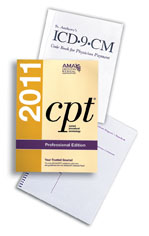A. Refractive errors following cataract surgery can usually be corrected with eyeglasses or contact lenses. Occasionally, the refractive error is large enough to create anisometropia that cannot be corrected with eyeglasses or contact lenses, and an additional surgery is warranted.
Q. What is considered clinically significant anisometropia?
A. Anisometropia is considered to be clinically significant when the difference between the refractive errors in the right eye and the left eye is more than 2 D. Patients affected by anisometropia complain of diplopia, difficulty with reading, poor depth perception and an intolerance of glasses. Their activities of daily living are affected by this vision issue.
Q. At what point is surgery warranted to correct anisometropia?
A. Several reasons exist for surgical intervention, including the following:
- The patient complains of significant symptoms;
- The symptoms adversely affect the patient’s lifestyle; and
- The physician cannot effectively correct the anisometropia with glasses or contact lenses.
Q. What types of surgical procedures are typically performed to correct anisometropia?
A. We find that surgeons may select one of two options: The surgeon may exchange the intraocular lens or implant a “piggyback” lens. A piggyback IOL is placed on top of the first IOL.
 |
A. Maybe. The patient’s medical record must clearly support the medical necessity for the procedure in order for it to be considered a covered service. This includes documentation of the patient complaint(s) and how his lifestyle has been compromised by this condition. In addition, the chart should reveal that other treatment options were not successful and surgical intervention is the only alternative.
Q. What is the best way to code these procedures for claim submission?
A. For an IOL exchange, use CPT code 66986 and ICD-9 code 367.31 (anisometropia). Other diagnosis codes might include 368.2 (diplopia) and 996.53 (mechanical complication of IOL). If performing a piggyback IOL, use CPT code 66985 (secondary implant not associated with removal of cataract) and the ICD-9 codes described for the IOL exchange. Keep in mind, however, that 66985 is usually associated with 379.31 (aphakia) and the claim may require additional information such as an operative report.
Q. May these procedures be performed as well as reimbursed in an ambulatory surgery center?
A. Yes, these procedures may be performed in an ASC or outpatient hospital department. Facility reimbursement exists for both procedures in both settings.
Q. If our claim is denied do we have any recourse?
A. Yes. You can appeal a denial as long as the medical record is complete and compelling. You can improve your chances of overcoming any denial if you document the reason(s) for the surgery in the medical record, including the patient’s complaint(s) and prognosis.
If you are concerned that Medi-care will consider the surgery to be medically unnecessary and therefore noncovered, you may want to obtain an Advance Beneficiary Notice of Noncoverage before surgery. Explain to the patient why Medicare will likely deny the claim. Prior to surgery, ask the patient to assume financial responsibility for the charge and secure the patient’s signature on an ABN. You may collect your fee from the patient at the time of service or wait for a Medicare denial. If both the patient and Medicare pay, promptly refund the patient or show why Medicare paid in error.
Q. How often are these surgeries filed to Medicare?
A. Medicare data does not differentiate procedures performed by their diagnosis, so the available relevant data also includes lens exchanges and secondary IOLs performed for indications other than anisometropia. The most recent data published by CMS indicates that in 2009, 66985 was submitted and paid approximately 5,000 times. The 66986 code was submitted and paid approximately 5,700 times. This is a 4-percent increase from the 2008 data for the lens exchange.
Q. What are the options for pseudophakic patients who desire an improvement in accommodation?
A. For patients with adequate distance vision who desire improved near vision, a low-diopter IOL implanted as a piggyback lens is an option.
The procedure would be considered refractive surgery, and would not be covered by Medicare; therefore the beneficiary must agree to pay for the procedure and any associated services. The revised ABN or a Notice of Exclusion from Medicare Benefits serves this purpose. The facility and surgeon should each execute a waiver form as well.
Q. If the patient is paying for a refractive procedure, are we required to file a claim with Medicare?
A. No. Medicare rules dictate that a claim needs to be submitted for cosmetic procedures (including refractive surgery) only if the patient requests it. Since cosmetic surgery is statutorily non-covered by Medicare, you would include the modifier -GY (noncovered by statute) on the claim.
Q. When the procedure is considered refractive, are the fees limited to Medicare’s allowable or limiting charges?
A. No. Pricing for refractive surgery is a private matter between the surgeon and the patient, and between the facility and the patient. You may collect any amount that is agreeable to both parties.
Q. If the surgeon owns the ASC, must we segregate the ASC charges from the professional charges?
A. Yes. Each entity (i.e., clinic and facility) should file its own claim, even if owned by the same person or corporation. Medicare separates the clinic and the ASC by unique identification numbers. Contracts with other payers are discrete. Funds should not be comingled.
Q. What are the 2011 Medicare reimbursement rates for these procedures?
A. In 2011, the national Medicare Physician Fee Schedule allowable for 66986, lens exchange, is $823.45. For the ASC the amount is $927.29, and for the HOPD it is $1,637.15. The national Medicare physician fee schedule allowance for 66985, secondary IOL, is $687.77. For the ASC, the amount is $927.29, and for the HOPD it is $1,637.15. These amounts are adjusted by local wage indices. The ASC and HOPD amounts include payment for the IOL.
Ms. McCune is vice president of the Corcoran Consulting Group. Contact her at DMcCune@corcoranccg.com .



